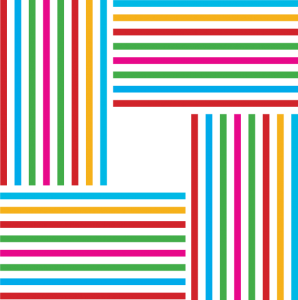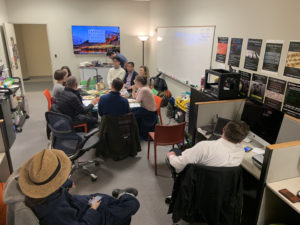Around the GC
 Quantitative Research Consulting Center
Quantitative Research Consulting Center
The Quantitative Research Consulting Center (QRCC) provides the GC Community with resources and support for statistical analysis in quantitative and empirical research. They host walk-in hours, one-on-one appointments, workshops and events that aim to offer help with project/research planning, data analysis, statistical programming and writing to members of all levels of programs at the Graduate Center (MA and PhD students, Post-docs, Faculty). This programming “bridg[es] the gap between the classroom and implementation in researchers’ own work.
 CUNY Mapping Service
CUNY Mapping Service
Part of the Center for Urban Research, the CUNY Mapping Service, directed by Steve Romalewski, “engages with foundations, government agencies, businesses, nonprofits, and other CUNY researchers to use spatial information and analysis techniques to develop and execute applied research projects.” Romalewski and his team of four build online applications that connect to powerful databases to create interactive maps.
 The Teaching and Learning Center
The Teaching and Learning Center
The Teaching and Learning Center (TLC) at the CUNY Graduate Center “creates and connects opportunities for GC students to grow as educators and scholars within the nation’s largest public urban university system”. In this endeavor, the TLC compiles and creates resources and guides, creates opportunities for graduate student instructors to mingle and collaborate, and provides an opportunity for critical, public, pedagogy-focused reflection on their blog, Visible Pedagogy.

 GC Digital Scholarship Lab
GC Digital Scholarship Lab New Media Lab
New Media Lab The CUNY Center for Digital Scholarship and Data Visualization
The CUNY Center for Digital Scholarship and Data Visualization

